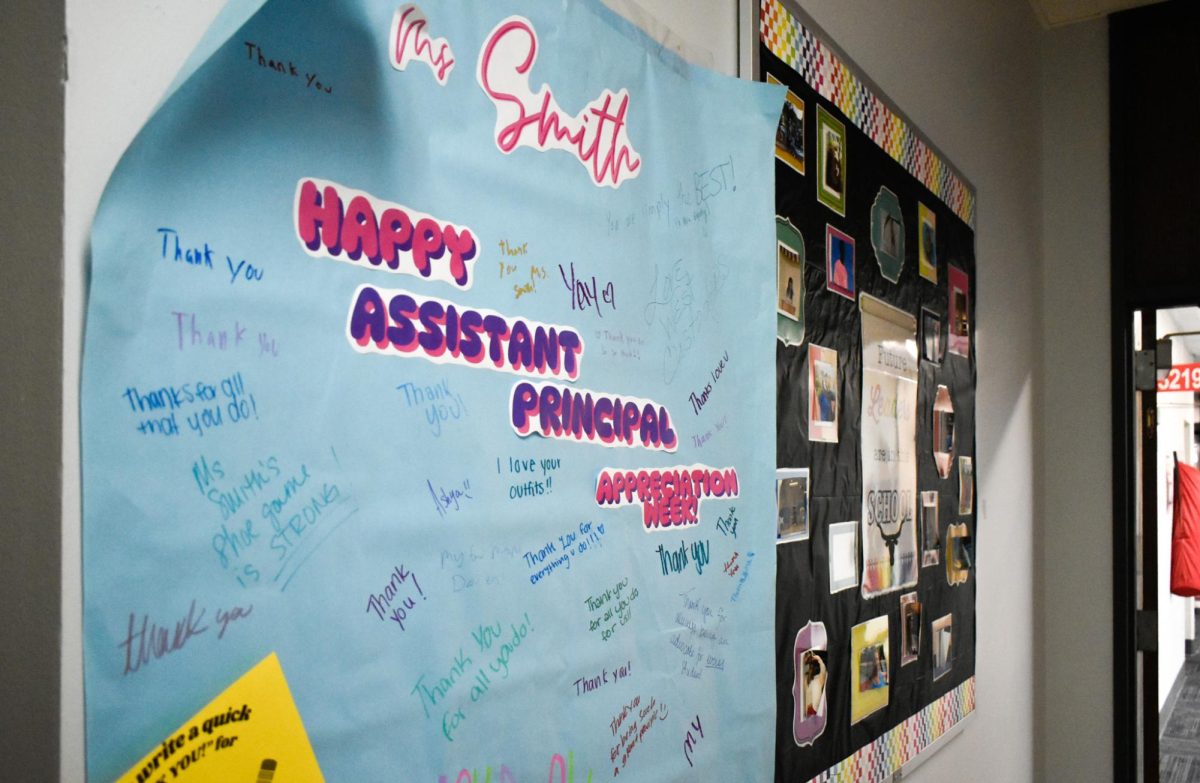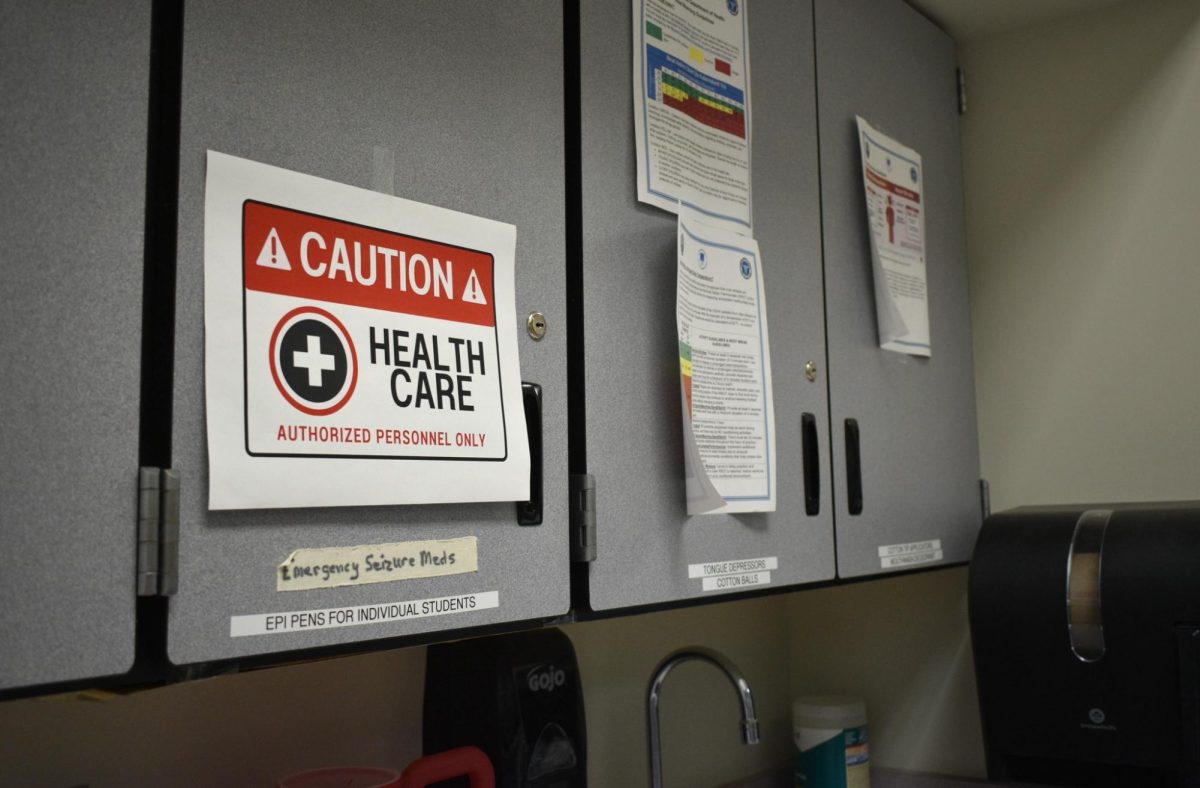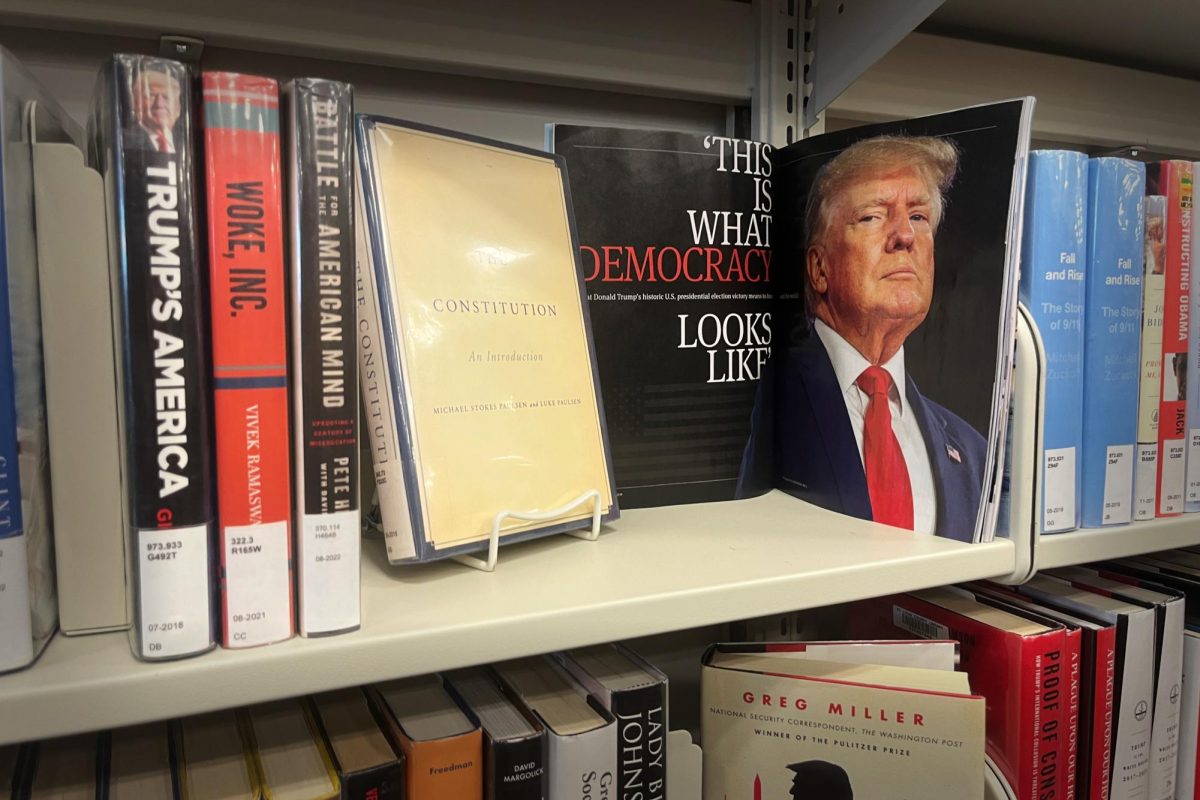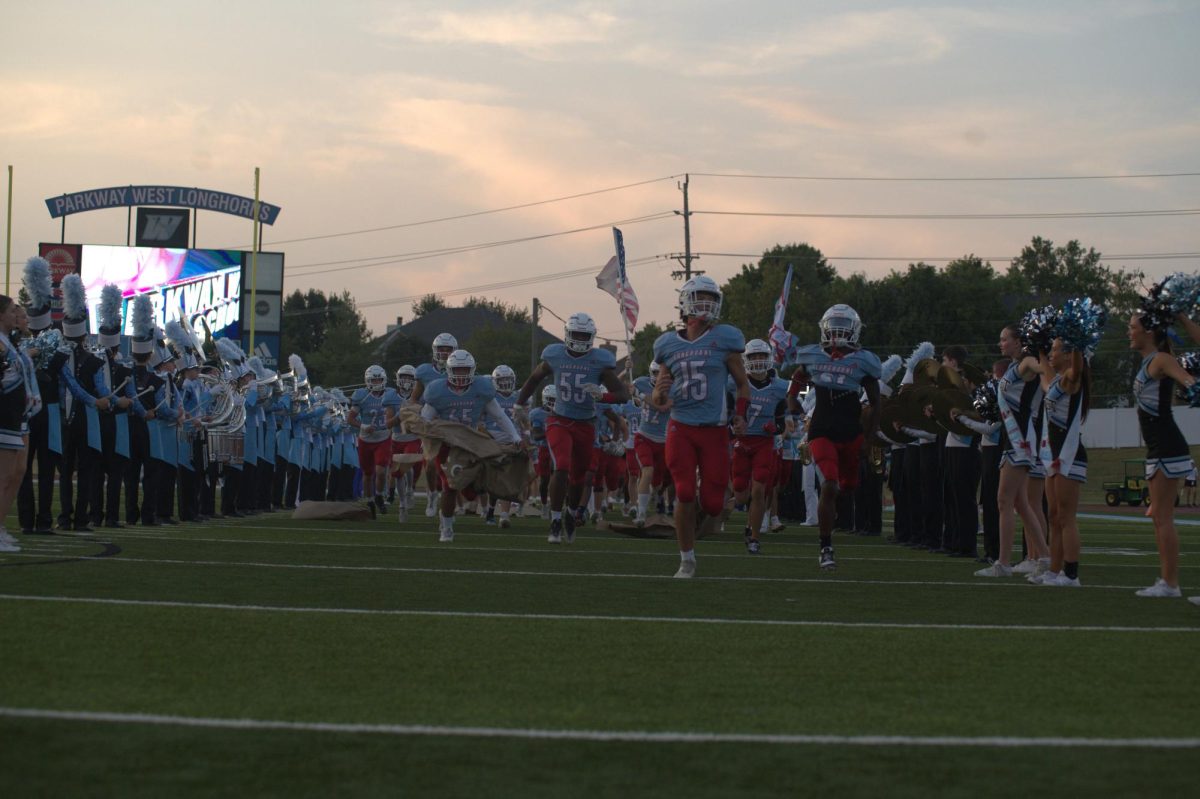A range of cultural icons stretching from Tupac Shakur to Greta Thunberg have commented on how younger generations are, in their eyes, more activist, more open to change and more willing to work to make sure change happens. Generational differences in views of issues such as the Israel-Hamas war have created discord between Gen Z and the generations that came before, as youth protests have re-entered the national conversation. However, the perception that young people care more doesnŌĆÖt necessarily translate over to reality.
ŌĆ£It’s always been [the case] that the oldest generation is most invested in the political process,ŌĆØ history teacher Kevin Doherty said. ŌĆ£In the last 70 years, the younger generation has often been the loudest voice in our nation and in many times the most influential in political activism. There is data that says that while the younger generation is disproportionately active in a positive way, they vote disproportionately less, because [they have] iPhones in [their] hand, but not all of them make it to the ballot box.ŌĆØ
Nowadays, the term ŌĆ£baby boomerŌĆØ does not bring to mind visions of raucous protestors rioting in the streets. Boomers are far more likely to be blamed for issues such as climate change than seen as┬Ā leaders in driving societal change. That wasnŌĆÖt always the way they were perceived, though. ItŌĆÖs all too easy to forget that backlash to Vietnam War protests and Holy Week uprisings, in which boomers participated heavily, helped spur Richard NixonŌĆÖs victory in 1968 ŌĆö in other words, their generation was considered far too radical by those that came before. This is a trend observable in many young generations. Young people tend to be more likely to protest in general and are likely better at managing the increasingly online nature of coordinating protests. Diplomacy Club vice president and senior Nidhisha Pejathaya emphasizes online activism as a key feature of political engagement for Gen Z.
ŌĆ£Gen Z is, at least online, very politically engaged,ŌĆØ Pejathaya said. ŌĆ£A lot of the media I’ve seen online has been very politically [focused]. Even [vice president] Kamala [Harris] is trying to cater to the Gen Z population. People who are running for office are aware of [how Gen Z engages], and they’re starting to cater to us more because our vote is really starting to count.ŌĆØ
Gen ZŌĆÖs increasing salience in the political sphere would seem to suggest that Tupac is right and younger generations do, in fact, put more energy into activism. However, protests and posts arenŌĆÖt the only areas of political engagement. Older generations do better in venues such as being politically informed and voting.
ŌĆ£My generation has more apathy for the political process and maybe takes it for granted,ŌĆØ Doherty said. ŌĆ£That is also true of our students at West High, but amongst a minority, there’s a real fervor, a real intensity about their engagement.ŌĆØ┬Ā
This discrepancy can be explained by differences in what people need at each stage of life. Younger generations tend to be lonelier than their older counterparts, and research suggests that a need for belonging and fulfillment predicts protest involvement among young adults. In other words, older people are more involved in solitary actions such as researching and voting on issues. In comparison, younger people are more engaged in group activities that lends a collective purpose.
In a season of political discord, perhaps even ŌĆ£a time for choosing,ŌĆØ understanding how generational dynamics affect political activism can help communities engage more effectively with the political sphere. Instead of heaping increasing amounts of backlash on student protestors, older generations would do well to remember that young activists are often motivated by an impulse that exists in all of us. At the end of the day, maybe they just want to belong. As for West High students and other young voters, thereŌĆÖs no better time for us to close the gap in information and voting between us and our elders.
ŌĆ£Our generation is very politically engaged, [but] only when it comes to major party stances, like abortion or presidential elections. A lot of us don’t realize that our representatives have to vote on our bills; it’s not just the President [who] makes the final decision. A lot of us show up for the main election, but we don’t show up for primaries. We need to start voting for the people who are [involved in] making change,ŌĆØ Pejathaya said.
┬ĀIn Missouri, you can register to vote online in a quick and easy process, then come to West High or a closer polling place on Nov. 5 to cast a vote. Alternative voting options such as early voting or mail-in voting are other options to ensure that you make your voice heard. Staying up to date beforehand with reliable news sources such as Reuters and the Associated Press can help new voters put their best foot forward. The more aware our generation is of the stakes and the more willing we are to make our voices heard, the more power we have to protect and preserve our democracy.
ŌĆ£The American experiment is ongoing, the jury’s still out, and it’s not a foregone conclusion that this system of government will always thrive,ŌĆØ Doherty said. ŌĆ£Our imperfect system does stand, in my opinion, far above the other systems. That alone is a reason to engage in the process. Hopefully, that [reason] will [push] the voter to learn the issues that are being voted on and to learn how to articulate their own convictions about those policies. Teenagers ought to be informed before they actually start voting. There are places in the world where this right is not guaranteed, [and] it’s forsaken by many.ŌĆØ

![Senior Sally Peters stands in the history hallway, contemplating her choices in the 2024 United States and Missouri elections on Nov. 5. As a member of Diplomacy Club, Peters has discussed key candidates and issues in contemporary American politics. ŌĆ£[As students], we're starting to become adults. We're realizing how much the policies that are enforced and the laws that make it through the House and Senate are starting to affect us. [Opportunities such as] AP [U.S.Government] and Diplomacy Club [make elections feel] a lot more real,ŌĆØ Diplomacy Club vice president and senior Nidhisha Pejathaya said.](https://pwestpathfinder.com/wp-content/uploads/2024/10/Flag-1-1.png)
![Dressed up as the varsity girlsŌĆÖ tennis coach Katelyn Arenos, senior Kate Johnson and junior Mireya David hand out candy at West HighŌĆÖs annual trunk or treat event. This year, the trunk or treat was moved inside as a result of adverse weather. ŌĆ£As a senior, I care less about Halloween now. Teachers will bring their kids and families [to WestŌĆÖs Trunk or Treat], but there were fewer [this year] because they just thought it was canceled [due to the] rain. [With] Halloween, I think you care less the older you get,ŌĆØ Johnson said.](https://pwestpathfinder.com/wp-content/uploads/2025/10/DSC00892-1-1200x800.jpg)
![Leaning on the podium, superintendent Melissa Schneider speaks to Parkway journalism students during a press conference. Schneider joined Parkway in July after working in the Thompson School District in Colorado. ŌĆ£My plan [to bond with students] is to get things on my calendar as much as possible. For example, being in [classes] is very special to me. I am trying to be opportunistic [meeting] kids [and] being in [the school] buildings. I have all the sports schedules and the fine arts schedules on my calendar, so that when I'm available, I can get to them,ŌĆØ Schneider said.](https://pwestpathfinder.com/wp-content/uploads/2025/09/IMG_5425-1200x943.jpeg)


![Red, white and blue, the American flag holds the values of our democracy. The fight that we once endured has returned, as student journalists and senior correspondents across the country are losing their voices due to government control. ŌĆ£[Are] the White House and [the] government limiting free speech [and] freedom of the press? Yes [they are],ŌĆØ chief communications officer of the Parkway School District and former journalist Elisa Tomich said.](https://pwestpathfinder.com/wp-content/uploads/2025/03/Untitled-design-14.jpg)
![A board in the Parkway West counseling department displays pennants of selective universities. With a wide range of students interested in attending, itŌĆÖs important that these schools have clear priorities when deciding who to admit. ŌĆ£[Washington University] had the major that I wanted, psychology, philosophy, neuroscience. That's a holistic study of the brain, and [WashU is] the only college in the world that offers that. That's the main reason I wanted to go; I got into that program,ŌĆØ senior Dima Layth said.](https://pwestpathfinder.com/wp-content/uploads/2025/02/Flag-1.png)

![Within the U.S., the busiest shopping period of the year is Cyber Week, the time from Thanksgiving through Black Friday and Cyber Monday. This year, shoppers spent $13.3 billion on Cyber Monday, which is a 7.3% year-over-year increase from 2023. ŌĆ£When I was younger, I would always be out with my mom getting Christmas gifts or just shopping in general. Now, as she has gotten older, I've noticed [that almost] every day, I'll open the front door and there's three packages that my mom has ordered. Part of that is she just doesn't always have the time to go to a store for 30 minutes to an hour, but the other part is when she gets bored, she has easy access to [shopping],ŌĆØ junior Grace Garetson said.](https://pwestpathfinder.com/wp-content/uploads/2024/12/DSC_0249.JPG-1200x801.jpg)

![Mounting school pressure can leave many students overworked and overstressed. Schools must give students the necessary resources to help assuage student mental health issues and prevent the development of serious crises. ŌĆ£The biggest thing [schools] can do [to protect student mental health] is offer more time [to do work], like a study hall, or offer more support from teachers so that students don't feel stressed out and can get help in areas that they need,ŌĆØ senior Bhavya Gupta said.](https://pwestpathfinder.com/wp-content/uploads/2024/09/unnamed-4.jpg)
![Sitting courtside before a junior varsity girlsŌĆÖ tennis match, senior Tanisi Saha rushes to finish her homework. Saha has found herself doing academic work during her athletic activities since her freshman year. ŌĆ£Being in sports has taught me how to stay organized and on top of my schoolwork. [With] a busy practice and game schedule, IŌĆÖve learned to manage my homework and study time better,ŌĆØ Saha said.](https://pwestpathfinder.com/wp-content/uploads/2025/11/DSC_0022-1200x800.jpg)
![Sophomore Maryem Hidic signs up for an academic lab through Infinite Campus, a grading and scheduling software. Some students enjoyed selecting their responsive schedule in a method that was used school-wide last year. ŌĆ£I think it's more inconvenient now, because I can't change [my classes] the day of, if I have a big test coming and I forget about it, I can't change [my class],ŌĆØ sophomore Alisha Singh said.](https://pwestpathfinder.com/wp-content/uploads/2025/10/DSC_0012-1200x801.jpg)
![Senior Dhiya Prasanna examines a bottle of Tylenol. Prasanna has observed data in science labs and in real life. ŌĆ£[I] advise the public not to just look or search for information that supports your argument, but search for information that doesn't support it,ŌĆØ Prasanna said.](https://pwestpathfinder.com/wp-content/uploads/2025/10/DSC_0073-2-1200x800.jpg)
![Junior Fiona Dye lifts weights in Strength and Conditioning. Now that the Trump administration has instituted policies such as AI deregulation, tariffs and university funding freezes, women may have to work twice as hard to get half as far. "[Trump] wants America to be more divided; he wants to inspire hatred in people,ŌĆØ feminist club member and junior Clara Lazarini said.](https://pwestpathfinder.com/wp-content/uploads/2025/05/Flag.png)
![As the Trump administration cracks down on immigration, it scapegoats many immigrants for the United StatesŌĆÖ plights, precipitating a possible genocide. Sophomore Annabella Whiteley moved from the United Kingdom when she was eight. ŌĆ£ItŌĆÖs pretty scary because IŌĆÖm on a visa. When my visa expires next year, IŌĆÖm not sure whatŌĆÖs going to happen, especially with [immigration] policies up in the air, so it is a concern for my family,ŌĆØ Whiteley said.](https://pwestpathfinder.com/wp-content/uploads/2025/05/DSC_0077-7copy.jpg)
![Shifting global trade, President Donald TrumpŌĆÖs tariffs are raising concerns about economic stability for the U.S. and other countries alike. ŌĆ£[The tariffs are] going to pose a distinct challenge to the U.S. economy and a challenge to the global economy on the whole because it's going to greatly upset who trades with who and where resources and products are going to come from,ŌĆØ social studies teacher Melvin Trotier said.](https://pwestpathfinder.com/wp-content/uploads/2025/05/MDB_3456-1200x800.jpg)



![Some of the most deadly instances of gun violence have occurred in schools, communities and other ŌĆśsafe spacesŌĆÖ for students. These uncontrolled settings give way to the need for gun regulation, including background and mental health checks. ŌĆ£Gun control comes about with more laws, but there are a lot of guns out there that people could obtain illegally. What is a solution that would get the illegal guns off the street? We have yet to find [one],ŌĆØ social studies teacher Nancy Sachtlaben said.](https://pwestpathfinder.com/wp-content/uploads/2025/01/DSC_5122-1200x800.jpg)

![Sophomore Shree Sikkal Kumar serves the ball across the court in a match against Lindbergh. Sikkal Kumar has been a varsity member of the varsity girlsŌĆÖ tennis team for two years, helping her earn the number two rank in Class 2 District 2.ŌĆ£When matches are close, itŌĆÖs easy to get nervous, but I [ground] myself by[staying] confident and ready to play,ŌĆØ Sikkal Kumar said.](https://pwestpathfinder.com/wp-content/uploads/2025/11/DSC2801-1200x798.jpg)
![Focused on providing exceptional service, sophomore Darsh Mahapatra carefully cleans the door of a customerŌĆÖs car. Mahapatra has always believed his customers deserve nothing less than the best. ŌĆ£[If] theyŌĆÖre trusting us with their car and our service, then I am convinced that they deserve our 100 percent effort and beyond,ŌĆØ Mahapatra said.](https://pwestpathfinder.com/wp-content/uploads/2025/10/DSC_0018-1200x800.jpg)
![Sophomore Aleix Pi de Cabanyes Navarro (left) finishes up a soccer game while junior Ava Muench (right) warms up for cross country practice. The two came to Parkway West High School as exchange students for the 2025-2026 school year. ŌĆ£The goal for the [exchange] program is to provide opportunities for both Parkway students and our international exchange students to learn about other cultures, build connections and become confident, capable, curious and caring ŌĆö ParkwayŌĆÖs Four CŌĆÖs ŌĆö in the process,ŌĆØ Exchange Program Lead Lauren Farrelly said.](https://pwestpathfinder.com/wp-content/uploads/2025/10/Feature-Photo-1200x800.png)
![Gazing across the stage, sophomore Alexis Monteleone performs in the school theater. The Monteleone familyŌĆÖs band ŌĆ£Monte and the MachineŌĆØ has been releasing music since 2012, but Alexis started her own solo career in 2024 with the release of her first single, Crying Skies. ŌĆ£My whole family is very musical, [and I especially] love writing [songs with them],ŌĆØ Monteleone said.](https://pwestpathfinder.com/wp-content/uploads/2025/09/DSC7463-1200x798.jpg)

![Leaping through the air, senior Tyler Watts celebrates his first goal of the season, which put the Longhorns up 1-0 against the Lafayette Lancers. Watts decided to play soccer for West for his last year of high school and secured a spot on the varsity roster. ŌĆ£[Playing soccer for West] is something I had always dreamed of, but hadnŌĆÖt really had a good opportunity to do until now. ItŌĆÖs [really] fun being out [on the field], and IŌĆÖm glad I decided to join the team. ItŌĆÖs just all about having fun with the boys and enjoying what time we have left together,ŌĆØ Watts said.](https://pwestpathfinder.com/wp-content/uploads/2025/09/DSC_1951-1200x855.jpg)

![Pitching the ball on Apr. 14, senior Henry Wild and his team play against Belleville East. Wild was named scholar athlete of the year by St. Louis Post-Dispatch after maintaining a high cumulative GPA and staying involved with athletics for all of high school. ŌĆ£ItŌĆÖs an amazing honor. I feel very blessed to have the opportunity to represent my school [and] what [it] stands for,ŌĆØ Wild said.](https://pwestpathfinder.com/wp-content/uploads/2025/05/unnamed-6-1200x714.jpg)
![Freezing in their position, the Addams Family cast hits the ŌĆ£rigor mortisŌĆØ pose after cast member and senior Jack Mullen, in character as Gomez Addams, calls out the stiff death move. For the past four months, the combined company of cast members, orchestra pit, crew and directors all worked to create the familial chemistry of the show. ŌĆ£IŌĆÖm excited for [the audience] to see the numbers, the music, the scenes, but I also just love all the technical aspects of it. The whole spectacle, the costumes, makeup and the people that put in the work backstage in order to make the show successful on stage. IŌĆÖm excited for people to see and appreciate that,ŌĆØ Mullen said.](https://pwestpathfinder.com/wp-content/uploads/2025/03/DSC0116-1200x800.jpg)
